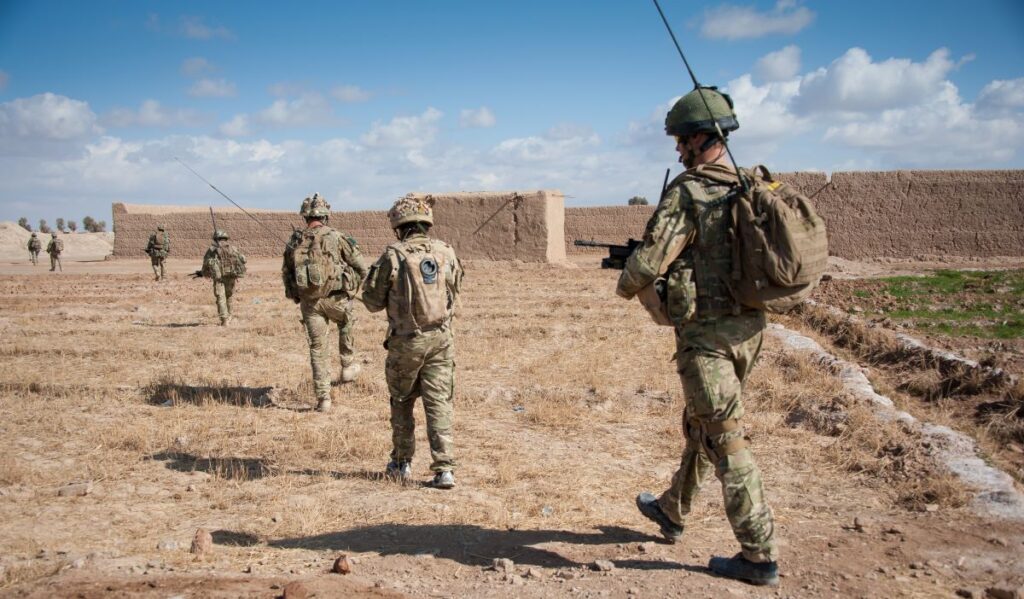August’s 2023 Poll Question:
Did the United States pull out of Afghanistan too fast?
Our Thoughts
A question that will no doubt be hotly debated for generations to come, if not longer. We expect that there is more to this story that could shed more light on the decisions of the Biden administration but who knows if it will ever come to light.
The fact that allies, friends and military hardware were left behind surely is a sign that there were logistics issues that could not be overcome. Timelines were already in place when Biden took control but the exit appeared anything but planned, the feeling of chaos was palpable as we watched the news feeds. Maybe the Biden administration knew that ISIS would come hard and fast once the US military turned their back. Or maybe they just got it completely wrong.
Results
6,123 Respondents
62% Voted: 3,745 Votes: YES
38% Voted: 2,378 Votes: NO
SurveyBeta Conclusion
Just over 6 in 10 people believe we pulled our military out of Afghanistan too quickly. There are a number of overriding views people seem to have on this topic. One is that the speed of the exit simply didn’t matter, we should have been out ( or never been in ) a long while ago. Someone from this school of thought would simply feel that it was a band-aid that just had to be pulled off. Deal with the short-term pain and move on.
If, like much of the American public, you watched the 24 hour news feeds from Afghanistan you would be left with the impression of utter disorganization. American military hardware left in dis-array, stories of valued allies being left to fend for themselves and helicopters airlifting American diplomats from rooftops. It’s easy to draw the conclusion of a rushed, botched withdrawal.
The reactions from America’s global allies points to the move being too fast and unplanned. Confusion and disarray from the UK, Australia and Canada leads us to believe that the USA kept everyone in the dark about how quickly they would be putting plans into effect.
One of the key arguments supporting the notion that the U.S. withdrawal was too fast is the chaotic aftermath witnessed during the evacuation process. The scenes of desperation at Kabul airport, with people clinging to departing planes and reports of Afghan allies being left behind, underscored the challenges and disorganization associated with the rapid withdrawal. The sudden collapse of the Afghan government and the swift Taliban takeover also contributed to the perception that the exit was hasty and poorly planned.
Also leaving behind military equipment and infrastructure raised concerns about the strategic implications and potential misuse of such resources by hostile actors. The abandonment of Afghan allies who had assisted U.S. forces further fueled criticism of the withdrawal timeline.
Proponents of the view that the U.S. exited too quickly argue that a more gradual and phased withdrawal could have better protected American interests, ensured a smoother transition of power, and provided adequate time for the evacuation of at-risk individuals. They contend that the rushed nature of the withdrawal undermined U.S. credibility and damaged relationships with allies.
However, it’s important to acknowledge that perspectives on this issue vary widely. Some argue that the U.S. had been involved in Afghanistan for nearly two decades with unclear objectives and mounting costs in terms of lives and resources. They believe that a decisive exit was necessary to end an extended and costly military engagement that had not achieved its intended goals.
The debate over the speed of the U.S. withdrawal from Afghanistan is likely to continue, with ongoing discussions about the implications for regional stability, counterterrorism efforts, and America’s role in global affairs. The poll results reflect a prevailing sentiment among a majority of respondents but do not capture the full complexity of the geopolitical and strategic considerations involved in this contentious issue.
Explore the sentiments of Americans during World War II in our Historical Surveys section.


